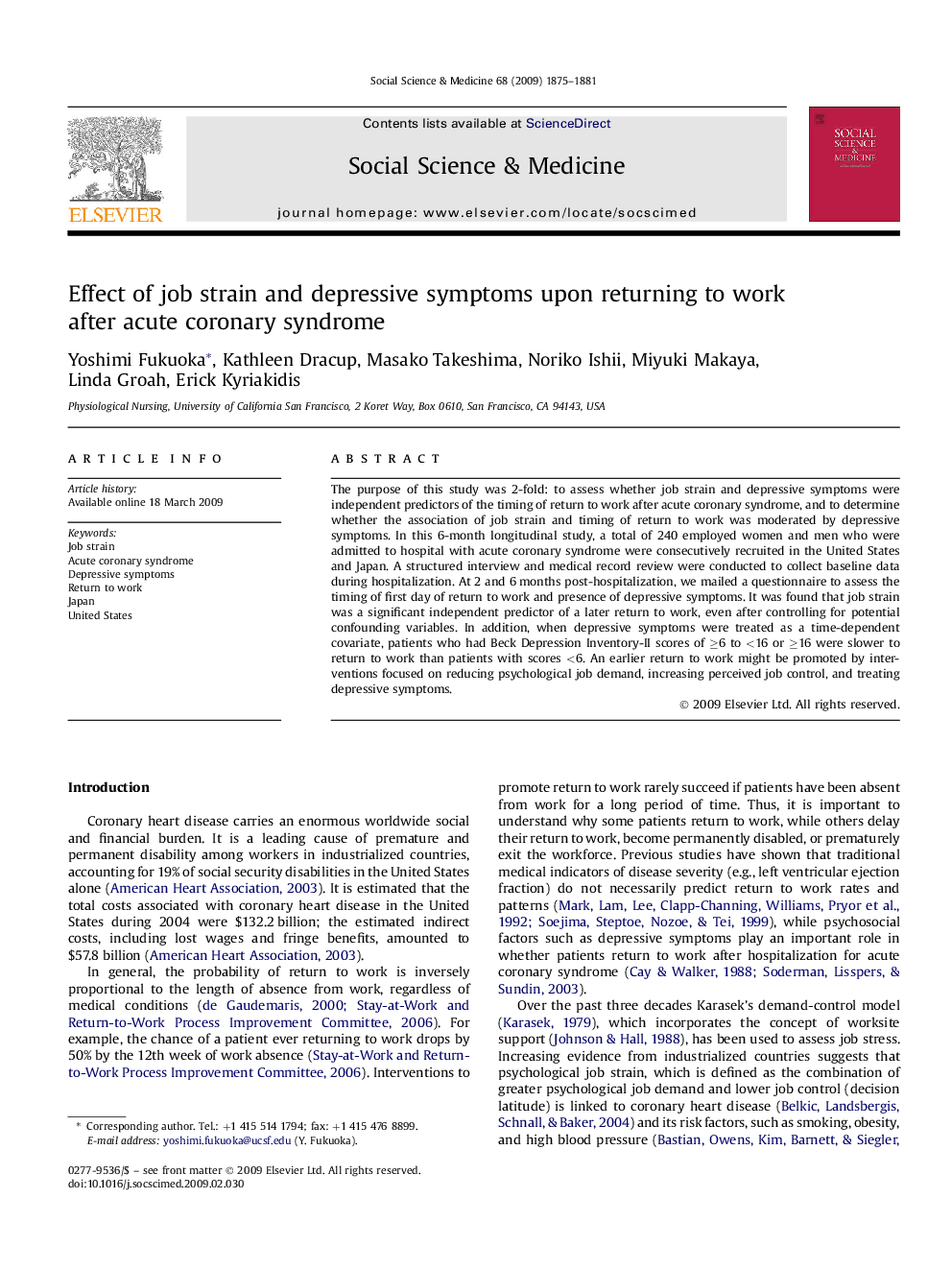| Article ID | Journal | Published Year | Pages | File Type |
|---|---|---|---|---|
| 953618 | Social Science & Medicine | 2009 | 7 Pages |
The purpose of this study was 2-fold: to assess whether job strain and depressive symptoms were independent predictors of the timing of return to work after acute coronary syndrome, and to determine whether the association of job strain and timing of return to work was moderated by depressive symptoms. In this 6-month longitudinal study, a total of 240 employed women and men who were admitted to hospital with acute coronary syndrome were consecutively recruited in the United States and Japan. A structured interview and medical record review were conducted to collect baseline data during hospitalization. At 2 and 6 months post-hospitalization, we mailed a questionnaire to assess the timing of first day of return to work and presence of depressive symptoms. It was found that job strain was a significant independent predictor of a later return to work, even after controlling for potential confounding variables. In addition, when depressive symptoms were treated as a time-dependent covariate, patients who had Beck Depression Inventory-II scores of ≥6 to <16 or ≥16 were slower to return to work than patients with scores <6. An earlier return to work might be promoted by interventions focused on reducing psychological job demand, increasing perceived job control, and treating depressive symptoms.
